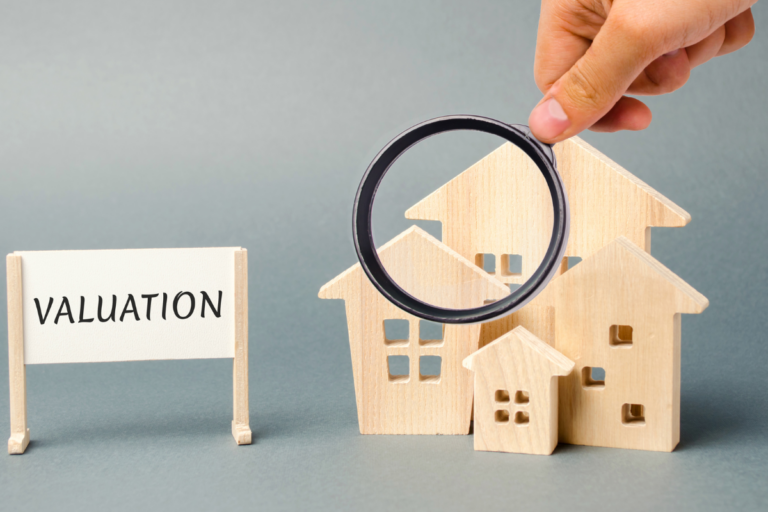Let’s Talk Appraisals
If you’re buying a home, you’ve probably heard the word “appraisal” thrown around. It might not sound like the most exciting part of the process, but it’s actually a pretty big deal—and one you don’t want to skip.
So, what exactly is a home appraisal, and why does it matter so much? In this post, we’re going to chat about what appraisals are, how they work, and why they’re so important. By the end, you’ll have a clear picture of how this step fits into your home-buying journey (and how it helps protect your investment). Let’s dive in!

What Exactly Is a Home Appraisal?
A home appraisal is kind of like a report card for the house you’re about to buy. It’s an unbiased estimate of the home’s value, done by a licensed appraiser. Think of them as the “value expert” who looks at the house and compares it to others in the area to make sure the price makes sense.
Here’s the deal: your lender (aka the bank) doesn’t want to loan you more money than the house is worth. The appraisal helps them make sure the home’s value matches what you’ve agreed to pay. At the same time, it’s a safety net for you, too—because no one wants to overpay for a home, right?
When Does the Appraisal Happen?
The appraisal comes after your offer has been accepted but before your loan gets the final stamp of approval. Here’s a quick rundown of when it happens:
- Offer Accepted: You and the seller agree on a price, and the paperwork is signed.
- Appraisal Ordered: Your lender arranges for a licensed appraiser to check out the home.
- Appraisal Report: The appraiser inspects the house, runs the numbers, and sends a detailed report back to the lender (and sometimes to you).
It’s usually wrapped up in about a week or two.
What Does the Appraiser Actually Look At?
So, what’s the appraiser doing while they’re there? They’re not judging your future décor choices (don’t worry), but they are looking at a lot of factors to determine the home’s value, including:
- Location: Is it close to good schools, parks, or shopping?
- Size and Layout: How big is the home, and how is it laid out?
- Condition: Are there major repairs needed, or is the home move-in ready?
- Comparable Sales: What have similar homes in the area sold for recently?
- Unique Features: Things like a finished basement, updated kitchen, or extra-large yard can all boost value.
When they’re done, they’ll put everything into a report that includes the appraised value, photos of the home, and details about comparable homes they used for reference.
Why Does the Appraisal Matter So Much?
The appraisal has a big impact on what happens next in your home-buying journey. There are three main outcomes:
The Appraisal Matches (or Exceeds) the Purchase Price: Awesome! This means the home’s value checks out, and you’re good to move forward.
The Appraisal Comes in Low: Uh-oh. If the appraised value is less than the purchase price, there’s a gap to address. But don’t panic—you’ve got options:
- Renegotiate: Ask the seller to lower the price to match the appraisal.
- Pay the Difference: Cover the gap out of pocket.
- Walk Away: If your contract includes an appraisal contingency, you can back out without losing your earnest money.
The Appraisal Comes in High: This is rare but great news for you—it means you’re getting a home worth more than you’re paying for it!
How an Appraisal Protects You
The appraisal isn’t just about keeping the lender happy. It’s there to protect you, too. Let’s face it—no one wants to spend more than a home is worth. The appraisal is like a double-check to make sure you’re making a smart investment.
Tips for Navigating the Appraisal Process
Here are a few things to keep in mind:
Know the Costs: Appraisals aren’t free. They usually cost between $300 and $600, and that’s typically paid by the buyer.
Understand Your Contingencies: Make sure your purchase contract includes an appraisal contingency. This gives you an “out” if the appraisal comes in low.
Plan for the Unexpected: While most appraisals align with the purchase price, there’s always a chance it could come in low. Work with your agent to have a game plan in place just in case.
Trust Your Agent: Your real estate agent can be a huge help here. They’ll guide you through the process, explain the report, and help you decide your next steps if something unexpected comes up.
Wrapping It Up: The Appraisal Is Your Friend
While the appraisal might feel like one more hurdle to jump over, it’s actually a crucial step in the home-buying process. It ensures you’re making a sound investment and that your lender is on board with the deal.
If you’re feeling a little overwhelmed, don’t worry—you’re not in this alone. Your real estate agent (could that be me?!) should be there to guide you every step of the way. Together, we’ll make sure you understand the process and feel confident about your purchase.

